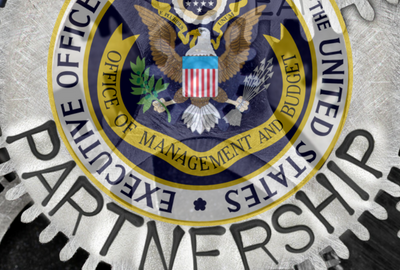

OMB has doubled down efforts to transform customer experience in government as a way to address other top management challenges.
More than a year after the Trump administration launched the President’s Management Agenda, the Office of Management and Budget has doubled down on efforts to transform customer experience in government as a way to address other top management challenges.
Margaret Weichert, OMB’s deputy director for management and the acting director of the Office of Personnel Management, said an improved customer experience in government not only helps give Americans better access to government services, but also serves as a retention tool for an aging federal workforce.
“Better service delivery is linked to better retention, because 96% of our federal employees would do extra work for a better outcome on mission,” Weichert said during the Service the Citizen awards ceremony in Washington. “They’re here for the right reasons, but if they are frustrated in delivering service to the people they serve, they might leave because, you know, it’s no secret — we aren’t the best-paid guys in the world.”
And nearly a year after OMB began a governmentwide public-private partnership to modernize the federal workforce, the Trump administration has launched a parallel competition on Challenge.gov to generate solutions for some of the government’s thorniest management challenges.
The Government Effectiveness Advanced Research (GEAR) Center Challenge seeks feedback on issues that include recruiting and reskilling the federal workforce, as well as improving government data accessibility to the public. Challenge winners, which OMB will announce on Aug. 1, will each receive a $300,000 prize.
The challenge follows the launch of the GEAR Center under the Trump administration’s sweeping government reorganization plan it released last summer. The center looks to bring in partners from academia, the private sector and good-government groups.
The GEAR Center looks to solve the problem of agencies not having enough time, attention or capital to transform the way they deliver services. Weichert said that should help agencies, including OMB, deliver cost-effective and efficient solutions.
“It’s not enough to say are we saving nickels if we are actually creating service quality [and] service delivery problems that end up costing more in the long-run,” she said. “All of this has to be thought of in an integrated way.”
While GEAR Center partners have plans to begin innovative pilots within agencies, Weichert noted that federal regulations have prevented agencies from testing out innovative service-delivery approaches.
“I could take a free drone and test it out, but I couldn’t take a [software-as-a-service] solution and test it out to see if it works in my agency,” she said. “So they are going to be more things that we need to think about in the future that we will have to expand.”
In addition, Weichert noted the competition will help highlight “root-cause challenges” in customer experience and other cross-agency priority goals under the PMA that agencies like the General Services Administration, OMB and OPM can work on.
In many regards, agencies must catch up with some of the services offered by the private sector. Weichert said the modern-day services must be “inherently multi-channel,” and allow members of the public to easily seek assistance on the web, on their smartphone, over the phone or in person.
Donny Vester, an IRS supervisory management analyst, received a Service to the Citizen Award for his work to help improve the multi-channel taxpayer experience at his agency.
The Field Assistance Scheduling Tool (FAST) allows taxpayers to sign up for an appointment over the phone and receive help from TAC employees soon after arriving. Through this “triage” process, Vester said IRS employees can either answer taxpayers questions over the phone or schedule an appointment.
Before the IRS mandated appointments for TAC visits in June 2017, Vester said taxpayers could wait as long as two-to-four hours to receive assistance.
“They get to see the right person at the right time and get their issue resolved,” Vester said in an interview.
IRS Commissioner Chuck Retting told the Senate Finance Committee last month that more than half of taxpayers who call to set up an appointment have had their tax questions answered over the phone, or been redirected elsewhere in the agency to resolve their problem.
However, in recent years, the IRS has had to close 38 of its unstaffed centers because of budget and workforce cuts.
Copyright © 2024 Federal News Network. All rights reserved. This website is not intended for users located within the European Economic Area.
Jory Heckman is a reporter at Federal News Network covering U.S. Postal Service, IRS, big data and technology issues.
Follow @jheckmanWFED


